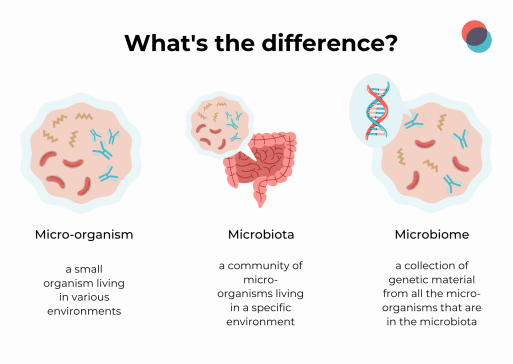Microbiota: a whole system of useful microorganisms
June 02nd, 2022, by Labtoo's team
What is microbiota and how is it made?
Microbiota is the variety of organisms living on different parts of the body. Those micro-organisms can be bacteria, viruses, and fungi, and they can be found almost anywhere in and on the body. The most known microbiota is located in the gut and on the skin, they are diverse and useful to the body’s immune system.

Your microbiota starts to form as soon as birth. It continues to develop with our surrounding environment, diet, hygiene, and genetic heritage. Your microbiota will evolve throughout your life, but the main development stages are during our first years and around 65-70 years old.
What is the difference between a microbiome and a micro-organisms?
Let’s define these terms! A micro-organism is, as the name indicates, a small organism living in various environments. A microbiome is a collection of genetic material from all the micro-organisms that are in the microbiota.
How to take care of your microbiota?
Here the advice will apply to gut microbiota. This microbiota is fragile, and it can be easily dysregulated by a poor change of diet or lifestyle. Some advice to better the health of your guts would be to eat fermented foods filled with probiotics, fibres, prebiotics, fruits, and vegetable. Of course, if you feel that your guts have a problem, please consult a medical professional.
What is the future for microbiota?
Nowadays, intestinal microbiota is the most researched. For a few years now, researchers are exploring theories that microbiomes could have a link with Parkinson’s disease, autism or even motor neuron disease. Experiments are mostly made on mice and the results are starting to suggest that microbiome could be used to treat those conditions.